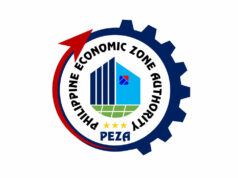By Camille A. Aguinaldo
Reporter
THE Senate on Monday approved on third and final reading the bill seeking to institutionalize the government’s anti-poverty Pantawid Pamilyang Pilipino Program (4Ps).
Senate Bill No. 2117 or the proposed Pantawid Pamilyang Pilipino Program Act was approved with 18 votes, zero negative vote, and no abstention.
“Cutting the cycle of poverty of and giving the poor the ability to improve their lives through the 4Ps program will enable them to contribute to the development of our country,” the bill’s author and sponsor Senator Leila M. De Lima said in a statement on Monday.
Under the bill, the Department of Social Welfare and Development (DSWD) is tasked to conduct and revalidate qualified beneficiaries using a standard targeting system every three years.
Those who are considered to be included in the program are homeless families, indigenous peoples, as well as those who are in the informal sector and those living in geographically isolated and disadvantaged areas.
The proposed measure also establishes a regional and national advisory council headed by the DSWD which determines the amount of conditional cash transfer for each beneficiary that may be granted.
Also in the bill are health and nutrition benefits of qualified beneficiaries from P600 to P750 monthly. Conditional cash transfer grants for children in day care may range from P500 to P700 monthly.
The eligible beneficiaries of the program shall also be automatically covered in the National Health Insurance Program (NHIP). Qualified beneficiaries may also avail of livelihood programs offered by DSWD, Department of Labor and Employment (DoLE), and other accredited private institutions.
The proposed measure laid down the following conditions that beneficiaries should comply with to ensure inclusion in the program:
• Pregnant women must avail of pre-natal services, give birth in a health facility attended by a skilled health professional, and receive after-care for her and her newborn
• Children from zero to five years old must receive regular health and nutrition services including check-ups and vaccinations
• Children one to 14 years old must avail of deworming pills at least twice a year
• Children three to 4 years old must attend day care or pre-school classes at least 85% of the time, while children 5 to 18 years old must attend elementary or secondary classes at least 85% of the time
• At least one responsible person must attend development sessions conducted by the DSWD at least once a month.
Failure to comply with the conditions listed in the bill even after a notice in writing shall cause the immediate termination of cash grants to the beneficiary, whose household will be subject to an assessment process by the DSWD. If the beneficiary remains non-compliant, he or she shall be removed from the program.
The counterpart measure in the House of Representatives, House Bill No. 7773, was approved by the chamber on Aug. 29.



